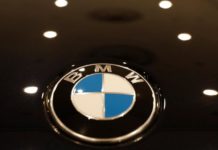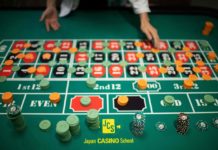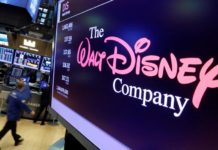Sunseeker shows how to sail upstream in a sluggish market
Author: Phil Popham, CEO, Sunseeker International
Bucking the downward trend in the luxury goods industry, Sunseeker International has risen to profitability on the back of innovative product development and a dedicated workforce.
Few in the UK could fail to be aware of the major political upheaval that dominated 2016. From manufacturing to professional services, almost all industries felt the pinch as currency rates became unpredictable and investors became increasingly cagey. The effect was perhaps most pronounced on the luxury goods market – an industry that lives and dies by fluctuations in global prosperity and positivity.
Within this sector, there is perhaps no more iconic product than the luxury yacht. A true symbol of wealth and status, yachts serve as a bellwether for the financial mood within the rarefied stratum of ultra high-net-worth individuals. In times of plenty, competition is fierce over size, style and amenities, while slower economic periods can see major contractions. When the latter is the case, only those yacht manufacturers that can rely on the twin strengths of traditional heritage and agile modern management can hope to ride out the storm.
Sunseeker International is one of the few brands that can claim such status; the company was founded by Robert Braithwaite in 1969 and is now owned by Chinese conglomerate Dalian Wanda Group. However, even the UK’s biggest luxury motor yacht manufacturer has sailed choppy seas in the past few years. Phil Popham joined Sunseeker as CEO in January 2015, after 26 years at Jaguar Land Rover. During his time at the latter, he was part of the executive team that helped to steer the company to what was one of the most commercially successful periods in its history.
“When Popham joined Sunseeker, the company was not experiencing the same fortunes, having recorded various losses of up to £41m in the years since 2013.”
When Popham joined Sunseeker, the company was not experiencing the same fortunes, having recorded various losses of up to £41m in the years since 2013, much of which was attributed to a downturn in the European markets. Since that time, however, Sunseeker has seen the successful deployment of a three-year turnaround plan which set the company back on course to return to profit in 2016. In light of this remarkable reversal of fortunes, European CEO spoke to Sunseeker CEO Phil Popham about how he and his team pulled the firm back from the brink, and what the future holds for both Sunseeker and the wider industry.
The luxury goods market endured a tough 2016. How did this affect Sunseeker and the yacht market in general?
The last 12 months have been defining for Sunseeker. During that time, we have delivered five new models across the size range, a record number for a single year, as well as increasing our forward-order book by over 40 percent year-on-year. Most importantly, the company has returned to profit after several years of loss.
That said, 2016 was not without its challenges, but overall Sunseeker weathered it well. Midway through the year, we enjoyed a short-term benefit from the weak sterling position. Furthermore, a very successful boat show season kicking off with London in January, followed by Dusseldorf, Miami, Cannes, Southampton, Monaco and Fort Lauderdale, served to bolster our performance with a substantial number of retail orders.
The investment we made across the business in 2015, the range of exciting new models we launched in 2016, and the launches set for 2017 all give us great confidence for the future. We are focused on driving innovation to bring exciting new models to market as part of a long-term product plan over the next five years.
We are very confident about the long-term opportunities for the business and for the industry. It remains a highly competitive market, which makes it more important than ever to keep investing in new product development to ensure we continue to deliver the world’s best luxury performance motor yachts.
What challenges did you face when you joined Sunseeker?
It was clear that we needed to focus much of our attention on setting up the right infrastructure in terms of manufacturing operations and production – these were our immediate priorities. Our brand was strong and well known in the marketplace, but we needed even greater investment. We knew the quality of our luxury yachts was second to none, but we also knew we needed to drive a much heavier pipeline of new product development – the lifeblood of any luxury yacht manufacturer.
As well as securing the working capital this would require, we needed to be quicker and more efficient, while operating at a lower cost, and all without impacting on the high quality that we are renowned for around the world. Efficiency is key to lowering costs in business, but this has to be aligned with the need to stay ahead of the game, replacing and expanding our product base, enticing new customers from competitors’ brands, and exciting our existing loyal customers.
How did you manage to return Sunseeker to profitability?
My priorities revolved around restructuring, good governance, and formal development of existing and new processes, such as new product development, quality and representation. From the outset, it was evident that restructuring would play a fundamental role in the turnaround plan. I brought in some new people to work alongside long-standing Sunseeker professionals who know the industry inside-out. A new CFO, Hughes Jacquin, who also comes from a non-marine background, joined the business at the same time as myself. We also appointed new operations and procurement directors, as well as promoting an HR director from within the company.
Continuing this trend, so far in 2017 we have seen a record intake of apprentices. These 40 new hires will maintain the total number of apprentices employed by Sunseeker at over 100, which is more than five percent of the total boat building workforce. This far exceeds recently introduced government targets. Our ongoing investment in developing skilled labour is an important part of our business plan for growth; the most cost-efficient way to ensure an ongoing stream of skilled labour is to invest in our apprenticeship programme with the support of Bournemouth and Poole College, and we’re incredibly proud of our achievement in this respect.
On joining Sunseeker, one of the first things I did was to visit all of the company’s shipyards. It was important that I introduced myself to everyone across the business and communicated my plans for the company. Visibility of the CEO is extremely important in a business of our size, so we introduced cascade meetings for the entire workforce and executive team. Understanding earnings potential is vital in maintaining morale, but the non-monetary aspect is just as important; we need to make sure our shipyards are safe and clean, and ensure that the work environment is good. It is important that our teams feel they are part of the wider company and understand their role in creating and building these amazing luxury motor yachts.
How has your experience at Jaguar Land Rover informed the turnaround at Sunseeker?
My time at Jaguar Land Rover taught me several key disciplines which have proven to be as effective here as in any other large manufacturing business. These include process discipline (to drive quality, cost efficiency and repeatability), governance, data-driven decision making, and empowerment, particularly of the management team but increasingly through every employee delivering improvements to the business, however small.
“I was very quickly able to develop a three-year turnaround plan and a five-year growth plan, which included launching a range of new products.”
I was very quickly able to develop a three-year turnaround plan and a five-year growth plan, which included launching a range of new products. To be ahead of this plan, and to have now returned to profit, is remarkable in such a short space of time. Much of this can be attributed to our strategy of investing in the key areas of the business, especially our people and in our product range, but also in our marketing. We are fortunate to have one of the most recognisable brands in our industry. However, this stands for little moving forward without a clear, differentiated positioning strategy which is relevant and aspirational to our audience. This has been a key focus, and will remain so going forward.
What new products has Sunseeker introduced recently?
In 2016, we launched five new models across our size range. These included three models from our yacht range, at 131, 116 and 95 feet in length, as well as the Predator 68 and our smallest flybridge yacht for over a decade, the Manhattan 52. We will continue this momentum in 2017, with four new models scheduled for launch, including the 68 Sport Yacht, Manhattan 66 and Predator 57.
In this market, both new and exciting products drive customer interest, and the response we have had to our latest models has been nothing short of incredible. We are optimistic this is going to continue, as we will be investing a further £50m across the business to support a bold product plan that will see many more new introductions over the next few years.
Our new Manhattan 52, which won the highly coveted ‘best flybridge under 55ft’ award at the Motor Boat of the Year Awards in 2017, has achieved record sales since its launch last autumn, with £80m in retail forward orders. This makes the yacht our fastest selling model ever, and is testament to the skill and passion I see every day in our employees from across the business.
How is Sunseeker investing in its future?
Sunseeker is committed to investing in the future, and we have developed long-term product plans and mapped the lifecycle of each boat we produce. Creating the ‘why buys’ and investing in our dealer network is also something we consider very important. Our representation is very strong in Europe and the US, and we are looking to replicate this success globally.
After-sales service is also key. If a customer invests in one of our products, it’s imperative they receive the best after-sales service possible, as soon as they need it and wherever they are in the world, whether that be for boat maintenance or operational assistance. Finally, investment in our facilities and build processes will ensure we maintain our reputation for designing, engineering and building the world’s greatest luxury performance motor yachts.
What do the next 18 months hold for Sunseeker?
Over the next 18 months, our main focus is to invest in new product development, our shipyards and our people. We are already seeing the benefits of this investment, with a strong reward and development culture, improved factory systems and production facilities, and, of course, new products, with four models launching this year.
Overall, 2016 has been a defining year for us, driven by the changes mentioned, but driven also by a great team, the secure financial backing of our parent company, and our exceptional representation worldwide. All this, underpinned by a strong forward-order book, means we are extremely excited about the future.










